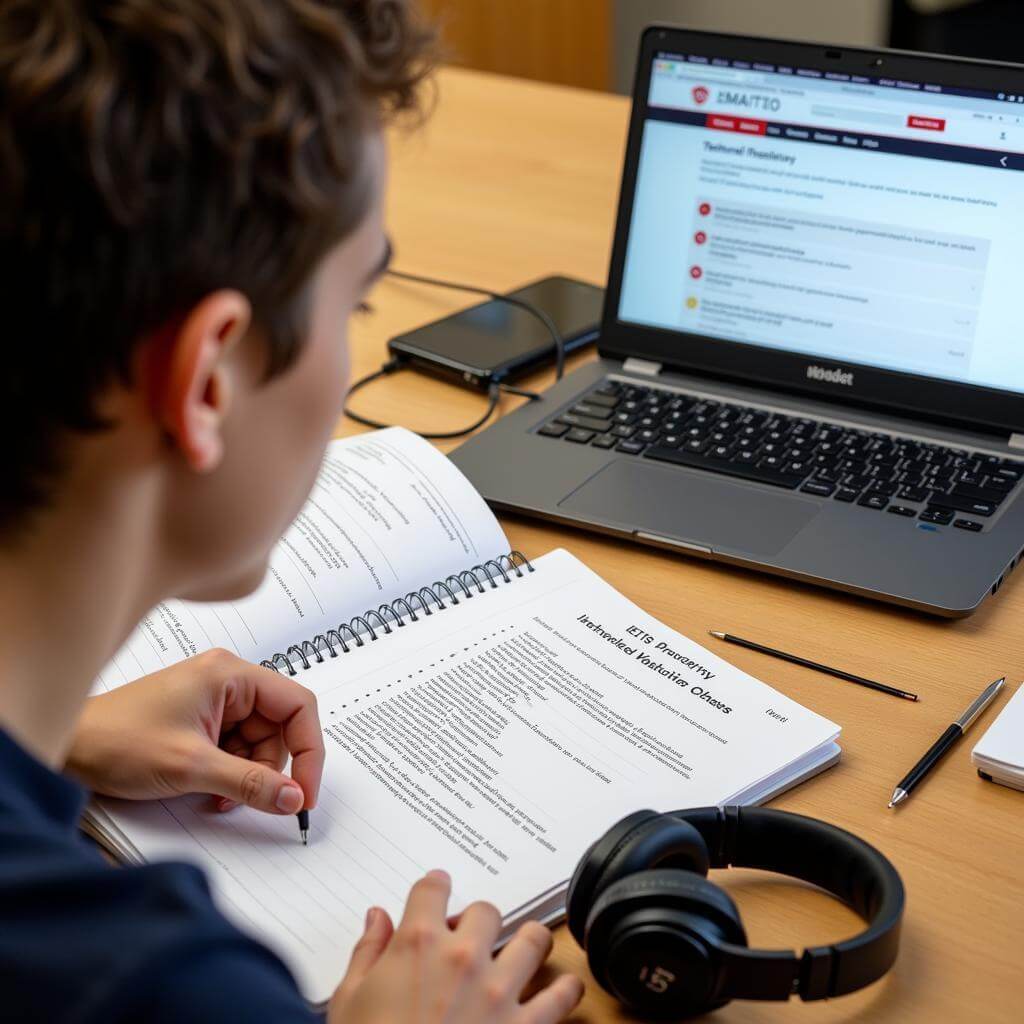The IELTS Listening test often includes technical vocabulary that can challenge even the most proficient English speakers. Mastering these specialized terms is crucial for achieving a high score in this section of the exam. This article will provide you with effective strategies to tackle technical vocabulary in IELTS Listening, ensuring you’re well-prepared for test day.
Understanding Technical Vocabulary in IELTS Listening
Technical vocabulary refers to specialized terms and jargon specific to certain fields or industries. In IELTS Listening, you may encounter technical words related to various subjects such as science, technology, academia, or business. These terms can be intimidating, but with the right approach, you can navigate them successfully.
Improving listening with podcasts can be an excellent way to familiarize yourself with a wide range of technical vocabulary across different subjects. This practice will help you become more comfortable with specialized terms in various contexts.
Examples of Technical Vocabulary in IELTS Listening
To give you an idea of what to expect, here are some examples of technical vocabulary you might encounter:
- Photosynthesis (Biology)
- Cryptocurrency (Finance)
- Artificial Intelligence (Technology)
- Quantum mechanics (Physics)
- Sustainable development (Environmental Science)
- Cognitive behavioral therapy (Psychology)
- Microeconomics (Economics)
- Biomechanics (Sports Science)
- Ethnography (Anthropology)
- Nanotechnology (Engineering)
Strategies for Handling Technical Vocabulary
1. Context Clues
One of the most effective ways to understand technical terms is by using context clues. Pay attention to the surrounding words and phrases that might help you decipher the meaning of unfamiliar terms.
2. Root Words and Affixes
Many technical words are composed of root words, prefixes, and suffixes. Understanding these components can help you guess the meaning of unknown terms. For example, “biodegradable” can be broken down into “bio” (life) and “degrade” (break down).
3. Anticipate the Topic
Before the audio begins, you’ll have time to review the questions. Use this opportunity to anticipate the topic and potential technical vocabulary that might be used. This preparation can help you recognize terms more easily when you hear them.

4. Focus on Key Information
Even if you don’t understand every technical term, focus on grasping the main ideas and key information. Often, you can answer questions correctly without knowing the exact meaning of every specialized word.
5. Regular Practice with Academic Content
Expose yourself to academic lectures, documentaries, and podcasts on various subjects. This will help you become familiar with a wide range of technical vocabulary and improve your overall listening skills.
Applying Strategies to IELTS Listening Test
When facing technical vocabulary in the actual IELTS Listening test, remember to:
- Stay calm and focused
- Use the context to infer meanings
- Pay attention to any explanations or definitions provided in the audio
- Look for familiar word parts in unfamiliar terms
- Don’t get stuck on unknown words; move on and focus on what you do understand
Managing long conversations in listening is another crucial skill that complements your ability to handle technical vocabulary. By improving both these aspects, you’ll be better equipped to tackle the IELTS Listening test.
Common Mistakes to Avoid
When dealing with technical vocabulary in IELTS Listening, be aware of these potential pitfalls:
- Panicking when you hear unfamiliar terms
- Focusing too much on individual words and missing the overall context
- Ignoring prefixes and suffixes that could provide clues to word meanings
- Failing to use the preparation time effectively to anticipate potential topics and vocabulary
- Neglecting to practice with a variety of technical subjects before the test
Practice Techniques for Improving Technical Vocabulary Skills
To enhance your ability to handle technical vocabulary in IELTS Listening, try these practice techniques:
- Create a technical vocabulary journal: Note down new terms you encounter and their meanings.
- Use spaced repetition: Review your vocabulary journal regularly to reinforce your memory.
- Listen to academic podcasts: Choose topics outside your comfort zone to expand your knowledge.
- Watch TED Talks: These often cover specialized subjects and use technical language.
- Take online courses: Platforms like Coursera or edX offer courses in various fields, exposing you to technical vocabulary in context.
Conclusion
Handling technical vocabulary in IELTS Listening can be challenging, but with the right strategies and consistent practice, you can significantly improve your performance. Remember to stay calm, use context clues, and focus on the overall meaning rather than getting stuck on individual words. By incorporating these techniques into your study routine, you’ll be well-prepared to tackle any technical terms that come your way in the IELTS Listening test.
Keep practicing regularly, expose yourself to a wide range of academic content, and don’t forget to track your progress. With dedication and the right approach, you’ll be able to confidently navigate through the technical vocabulary in your IELTS Listening test and achieve the score you’re aiming for.